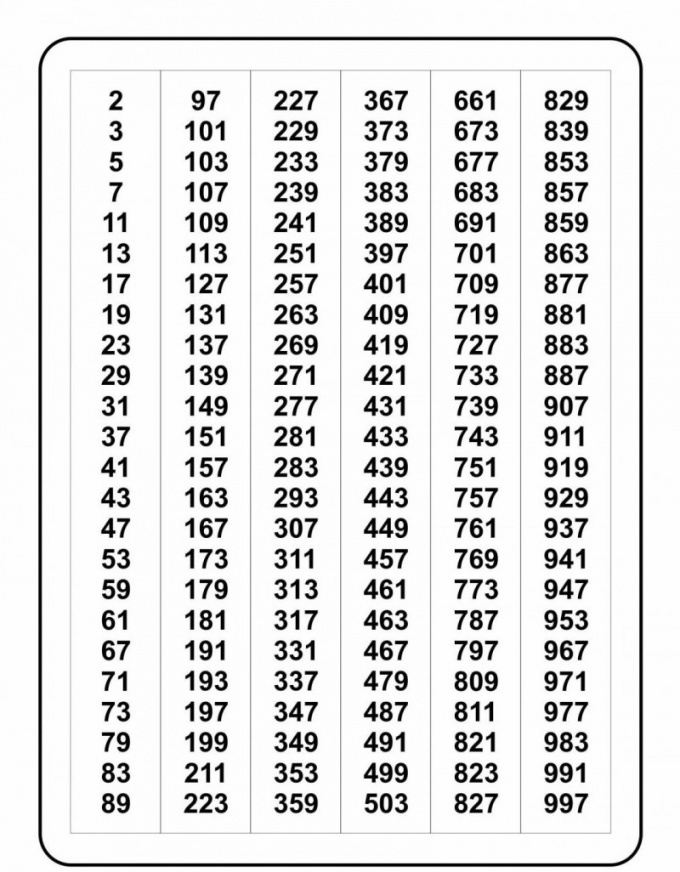You will need
- - a table of Prime numbers;
- - divisibility rules of numbers;
- calculator.
Instruction
1
Most often, it is necessary to decompose the number into Prime factors. Are numbers that divide the original number without a remainder, and can divide evenly only by itself and the unit (such numbers include 2, 3, 5, 7, 11, 13, 17 etc.). Moreover, no regularity in the number of Prime numbers not found. Take them from a special table or search using the algorithm called "sieve of Eratosthenes".
2
Start to select a Prime number that divides the given number. Private again divide by a Prime number and continue this process until, as long as private will not remain a Prime number. Then just count the number of Prime factors, add to it the number 1 (which takes into account the last private). The result will be the number of Prime factors that when multiplied will give the required number.
3
For example, the number of common factors of a number find 364 thus:
364/2=182
182/2=91
91/7=13
Get numbers 2, 2, 7, 13, which are simple natural divisors of the number 364. Their number is equal to 3 (if you count the duplicate splitters in one).
364/2=182
182/2=91
91/7=13
Get numbers 2, 2, 7, 13, which are simple natural divisors of the number 364. Their number is equal to 3 (if you count the duplicate splitters in one).
4
If you need to find the total number of all possible positive divisors of a number, use its canonical decomposition. To do this, as described above decompose the number into Prime factors. Then record the number as the product of these multipliers. Repeating the number raise to the extent, for example, if you have received three divider 5, then write it down as 53.
5
Write down the work from the smallest to the largest multipliers. Such a work and called the canonical decomposition of the number. Each multiplier of this decomposition has a degree, is represented by natural number (1, 2, 3, 4, etc.). Denote the exponents of the multipliers A1, A2, A3, etc. Then the total number of divisors will be equal to the product (a1 + 1)∙(a2 + 1)∙(a3+1)∙...
6
For example, take the same number 364: its canonical decomposition 364=22∙7∙13. Get A1=2, A2=1, A3=1, then the number of positive divisors of this number will be equal to (2+1)∙(1+1)∙(1+1)=3∙2∙2=12.
